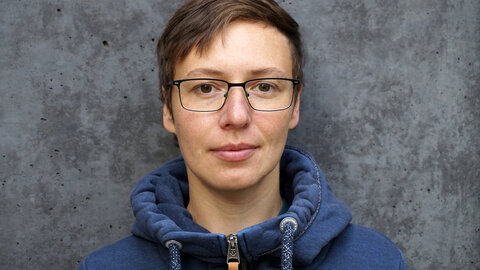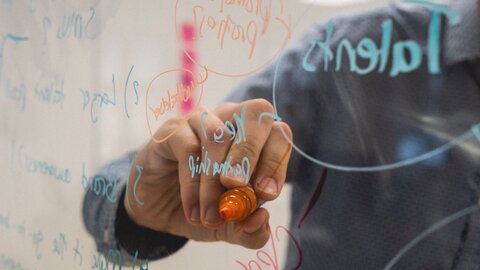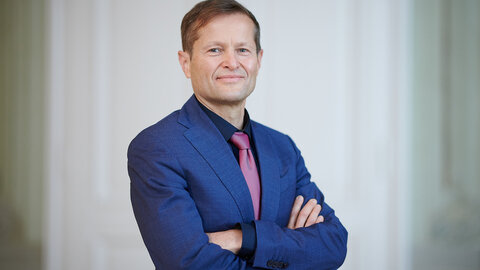Unbounded Curiosity

A Nobel Prize for an Austrian scientist and the worldwide recognition that comes with it is no everyday occurrence. “I am in a state of positive shock,” was the brand-new Nobel laureate Anton Zeilinger’s first reaction. Many in the scientific community probably feel the same way, and yet this high honour comes as no surprise.
Nobel Prizes don’t fall from the sky, just as scientific breakthroughs don’t happen overnight. “The Nobel Prize emphasizes that we are on the right track. Investing in basic research drives scientific progress and shows us the path we should be sticking to in the future. The Nobel Prize is, of course, first and foremost an award for Anton Zeilinger, but also for his working environment and Austrian basic research as a whole,” says FWF President Christof Gattringer. As Anton Zeilinger summed it up during the first press conference after the announcement, “I couldn’t have done this without the support of taxpayers in Austria and Europe.” Two main factors contributed to the worldwide recognition of the top achievements in quantum research in Austria and the resulting Nobel Prize: the enthusiasm and hard work of the researchers at Austria’s universities and non-university research institutions, and the support of the public sector, which provides the money and infrastructure needed to conduct internationally competitive top-level research.
Key publications for the Nobel Prize funded by the FWF
“This has only been possible because I was given the chance to do things in physics that interested me from a very early age, without any consideration of whether it might or might not have a use at some point,” says Anton Zeilinger.
The first FWF funding for Anton Zeilinger's research dates back to a project on neutron interferometry by Zeilinger’s doctoral supervisor Helmut Rauch in the early 1970s. The project was funded with the at the time considerable sum of 2,852,000 schillings and resulted in a series of joint publications by Helmut Rauch and Anton Zeilinger.
Austria’s newest Nobel laureate submitted his first stand-alone project to the FWF in 1980; the first in a long-term funding relationship. Zeilinger has since acted as both principal investigator and project partner in numerous projects, supporting and collaborating with many of today’s internationally outstanding scientists from Austria and abroad, including Jörg Schmiedmayer (TU Vienna), Markus Arndt (University of Vienna), Markus Aspelmeyer (University of Vienna), Dik Bouwmeester (Leiden/Santa Barbara), Jian-Wei Pan (USTC), Thomas Jennewein (Waterloo), Harald Weinfurter (LMU Munich), and Gregor Weihs (University of Innsbruck).
The youngest generation of Anton Zeilinger's students includes START award winners Philip Walter and Markus Huber as well as former FWF Schrödinger Fellow and current Max Planck research group leader Mario Krenn (MPI Erlangen). Armin Hochrainer and Manuel Erhard (FWF Doctoral Programme) are currently employed at Quantum Technology Labs, working under Rupert Ursin on the commercial implementation of quantum communication. Ursin has collaborated with Zeilinger for many years.
Of the ten publications mentioned by the Nobel Prize Committee in the grounds for its decision, nine were realised with FWF support.
Nobel Prize as motivation for young talent
Zeilinger also sees the prize as “encouragement for young people.” His advice to them: “Don't think too much about future applications.” What we will see in the next 20 years, both in the field of basic quantum physics and in terms of applications, is “absolutely open,” says Zeilinger, who will receive the prize in Stockholm on 10 December, the anniversary of the death of the founder Alfred Nobel, together with the French physicist Alain Aspect and the US physicist John F. Clauser. At the same time, Zeilinger also thanks “the hundreds of young people I have worked with over the years.”
Supporting junior researchers also plays a key role at the Austrian Science Fund (FWF), with two-thirds of all FWF funding going to researchers under the age of 36. These are the people who are developing the ideas today that give hope for further scientific breakthroughs in the coming years. “Supporting bold, new ideas that have the potential to make a major impact later on is one of the FWF’s main goals. This is why a large part of our funding goes to young scientists, including, hopefully, even more Nobel Prize winners in the future,” says Christof Gattringer.
Curious from a young age – an exemplary career
The physicist, who was born on 20 May 1945 in Ried im Innkreis (Upper Austria), is considered a pioneer in the transmission of quantum information between photons. He has made numerous breakthroughs in this field and set new transmission records throughout his career. This type of information transfer is, for example, “fundamentally important for the transport of information in quantum computers,” Zeilinger said at the press conference in Stockholm.
After studying physics and mathematics at the University of Vienna and writing his dissertation on “Neutron Depolarization in Dysprosium Single Crystals” under the supervision of Helmut Rauch (who later became President of the FWF), Zeilinger obtained his venia docendi at the Vienna University of Technology in 1979. He started his career in 1972 as a research assistant at the Vienna Atomic Institute and has held many different positions, including a Fulbright Fellowship at the Massachusetts Institute of Technology (MIT), where he worked with Clifford Shull, who later won the Nobel Prize in 1994. He then worked as an assistant professor at the Vienna Atomic Institute, MIT, and the Vienna University of Technology. After professorships at the Technical University of Munich and the University of Innsbruck, he came to the University of Vienna as Professor of Experimental Physics in 1999 and has been a professor emeritus since 2013. In addition, he has also been conducting research at the Institute for Quantum Optics and Quantum Information at the Austrian Academy of Sciences since 2004, where he also served as director from 2004 to 2013. Anton Zeilinger was President of the Austrian Academy of Sciences from 2013 to 2022. He holds multiple honorary doctorates and professorships and has been the recipient of numerous prestigious awards, including the Wolf Prize in Physics in 2010, the John Stewart Bell Prize in 2017, the Micius Quantum Prize in 2019, and the Grand Decoration of Honour in Gold for services to the Republic of Austria and the City of Vienna. He is also a Fellow of the American Association for the Advancement of Science (AAAS) and a member of numerous science academies worldwide.
Quantum research at the Austrian Science Fund (FWF)
The FWF funds quantum research across its entire funding portfolio. Together with the Austrian Research Promotion Agency (FFG), the FWF has also been implementing Quantum Austria, a funding initiative of the Federal Ministry of Education, Science and Research (BMBWF) since 2021; ten projects have been funded to date through Quantum Austria, using funds from the NextGenerationEU recovery and resilience plan.





